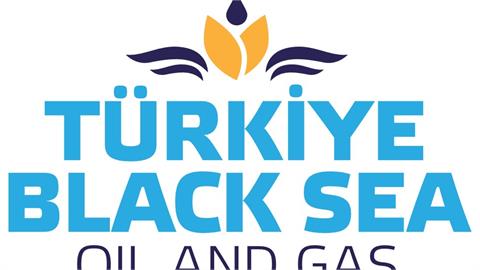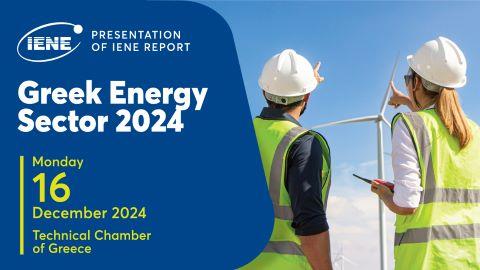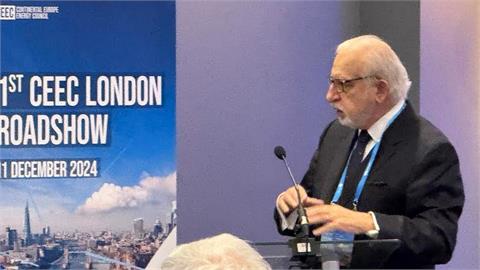Following an invitation by the organisers the Chairman and Executive Director of IENE participated once again in "Flame", Europe’s biggest and most influential energy and gas conference. The conference took place as usual at the Okura Hotel in Amsterdam from May 3-5. Inevitably a fair amount of presentations and panel discussions evolved around energy security and the gas supply gap emerging across Europe as a result of EU’s sanctions against Russia.
Following an invitation by the organisers the Chairman and Executive Director of IENE participated once again in "Flame", Europe’s biggest and most influential energy and gas conference. The conference took place as usual at the Okura Hotel in Amsterdam from May 3-5. Inevitably a fair amount of presentations and panel discussions evolved around energy security and the gas supply gap emerging across Europe as a result of EU’s sanctions against Russia.
The conference provided the opportunity for a thorough review of European and global energy developments focusing on gas and hydrogen. Now with the Russian oil and gas embargo looming and little progress in sight on energy transition, as Prof.Dieter Helm very presciently observed in his well documented address,the debate proved to be substantial. The limited options currently available through LNG for the transformation of Europe’s gas market were also highlighted as the world is already facing an LNG shortage. With Europe bend on massive increases of LNG imports market limitations will soon become more obvious.
The session where IENE’s chairman participated,and was expertly moderated by Claudia Patricolo editor of CEE Energy News, dealt with gas markets in CEE and SEE and also included Borbala Toth from the RECC Institute in Budapest.
A range of topics were examined including the need for additional gas infrastructure in the broader region including Interconnector pipelines,extra storage capacity and LNG terminals. Diversification of gas supplies was another hot issue which attracted considerable attention especially with regard of new entrants in the SEE gas market such as Azerbaijan, via TAP, and USA LNG through terminals in Greece,Croatia and Turkey.
Longer term projects such as the East Med pipeline also came to the fore, especially as geopolitical and economic conditions have changed dramatically over the last few months and now favour such projects as they help European gas supply diversification. In this sense, agreed the panel, gas has acquired a new significance in terms of ensuring security of supply as it will continue for some considerable time to form the backbone of the regional energy system. As more renewables are expected to enter the electricity mix of many countries over the coming years, gas is the only reliable fuel,together with nuclear, which can provide much needed base load and storage at the same time.
Finally, another important point raised by IENE’s chairman was the need to step up exploration efforts for the discovery and exploration of new gas fields in the various countries in the region. As Costis Stambolis pointed out in his concluding remarks, “the best way to ensure gas supply diversification and decoupling from Russian gas would be for the countries in SEE to develop their own substantial gas reserves. Between them these countries have a huge unexplored hydrocarbon potential spanning the Adriatic, the Black Sea and the East Mediterranean. Current estimates indicate some 4.5 -5.0 tcm of total commercially exploitable gas resources”.




